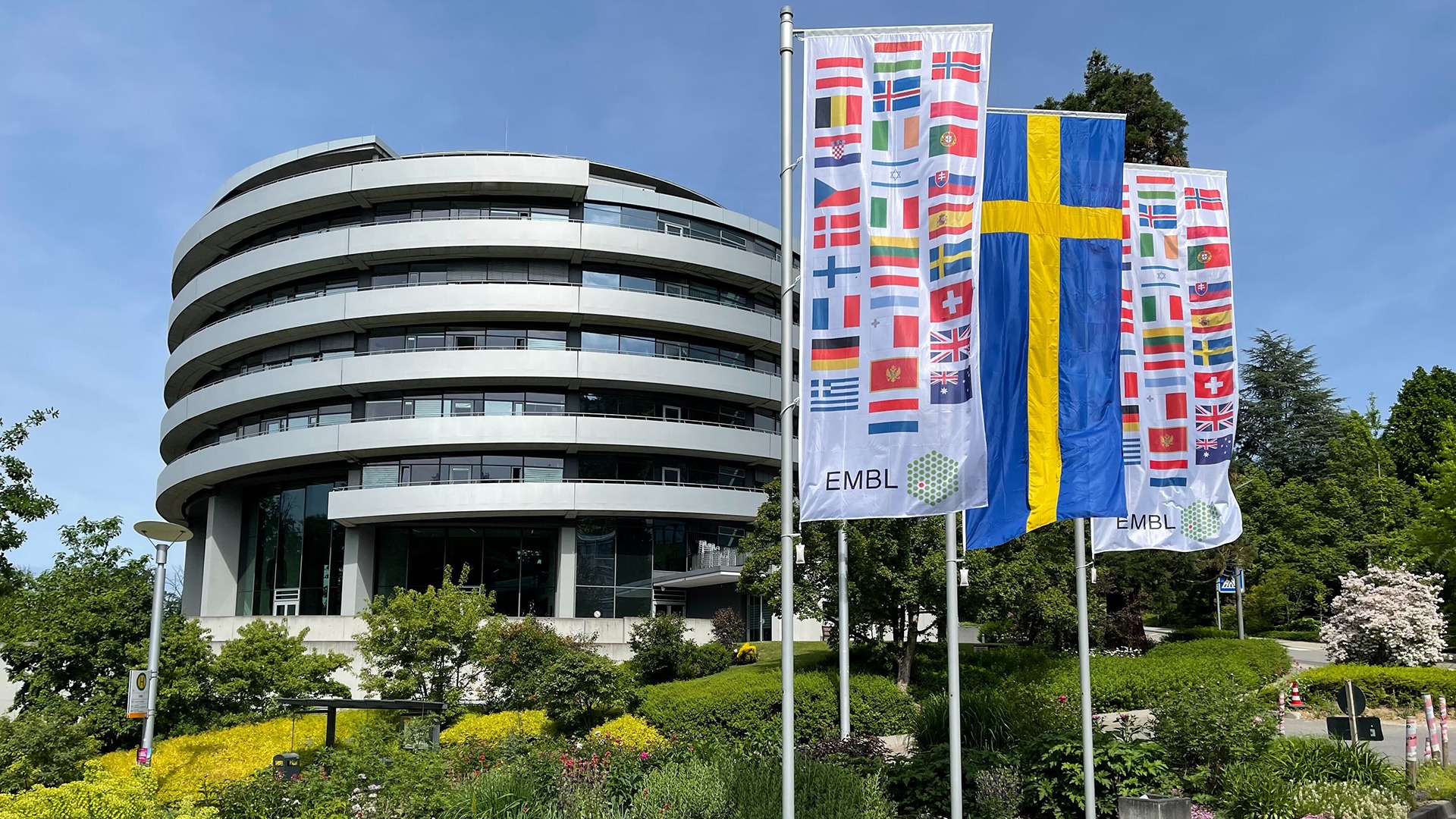EMBL and SciLifeLab in joint planetary biology effort
On May 16 and 17, the SciLifeLab-EMBL Planetary Biology Workshop took place in Heidelberg and online. The purpose of the workshop was to enhance connectivity between researchers at both SciLifeLab and EMBL, identify new collaboration ideas, and promote joint technology and infrastructure resource development within planetary biology.
Last year, SciLifeLab and EMBL signed a memorandum of understanding (MoU) declaring a joint ambition to stimulate mutually beneficial scientific and academic exchange and collaboration in various areas of life science research. Planetary Biology is the most recent addition to SciLifeLab’s capabilities. Earlier this year, Olga Vinnere Pettersson and Stefan Bertilsson were appointed co-leads of this new capability.
“The aim of the MoU is to ensure greater connectivity, availability of scientific data, use of shared key technologies, and circulation of talent. The workshop we arranged with EMBL was one activity aiming toward this goal”, says Olga Vinnere Pettersson, Co-Lead Planetary Biology, SciLifeLab.
The idea is to host additional collaborative events between the two organizations in the future, to build on the joint strengths of EMBL and SciLifeLab.
“It is fantastic to have SciLifeLab researchers on-site at EMBL Heidelberg, and I am looking forward to seeing the positive outcomes from events like this. EMBL wants to empower European science through the pooling of expertise, and the development and sharing of key resources and technologies. EMBL and SciLifeLab researchers will benefit greatly from this and future exchange between our organisations”, says Edith Heard, Director General at EMBL.
During the sessions, presenters from EMBL and SciLifeLab were intertwined with external keynotes such as Mark Blaxter from Wellcome Sanger Institute, who gave a talk on Chromosomally complete genomes across the Tree of Life, and Martin Polz, University of Vienna on Eco-evolutionary dynamics of phage-host interactions in the wild.
“The SciLifeLab-EMBL Planetary Biology Workshop has a broad scope, ranging from genomic sequencing and biodiversity to dynamic research of ecosystems, covering many areas of broad impact to society today and tomorrow. The workshop provides a fantastic snapshot of these areas and how the latest technology- and data-driven approaches can be leveraged in this context. EMBL is further ahead in assembling a major plan for their planetary biology research. For us, it is an opportunity to coordinate and contribute efforts and assemble a national program under the SciLifeLab umbrella”, says Olli Kallioniemi, Director SciLifeLab.
Research infrastructures at SciLifeLab and EMBL are fundamental to leveraging research to meet societal challenges.
”The research theme of planetary biology aims to understand how the molecular biology of microbes, plants, and animals contribute to an ecosystem, and how this environment affects the molecular biology of individual organisms living within it. From an imaging perspective, planetary biology sparks new ideas for technology development, especially for sampling and specimen preparation in nature. It is a creative challenge to bring the lab to the field and preserve unique samples for advanced microscopy imaging. Seeing the molecular structures of microbes in unique environments will be fantastic, and it is crucial for our future planetary biology projects”, says Linda Sandblad, Scientific Platform Director Cellular and Molecular Imaging, Umeå University, SciLifeLab.
Besides research, infrastructure and training are key components of the mission of EMBL and SciLifeLab. The workshop provided an opportunity to bring all parts together, and to discuss the way forward.
“Life in context is really what we are looking at in planetary biology – to understand ecosystems, to understand biomes – to understand the earth. We have fantastic infrastructure and expertise that we want to engage in tackling the big challenges ahead. It is about bringing researchers, stakeholders, and infrastructures together – it is about meeting and connecting researchers and engaging this rather diverse and strong research community to sharpen the concept of planetary biology capability for maximum impact. Today we start this conversation, says Stefan Bertilsson, Co-Lead Planetary Biology, SciLifeLab.





